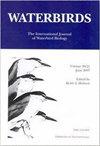水鸟博物学研究的价值与必要性
IF 0.6
4区 生物学
Q3 ORNITHOLOGY
引用次数: 2
摘要
自然史是研究生物在其生存环境中的学科,作为生态和生物科学的基础具有重要的历史意义(例如,Jerdon, 1874)。埃尔顿(Elton, 1927)强调了自然史的中心地位,他将生态学定义为“科学的自然史”。作为对自然“历史”的描述,自然史研究需要个人的参与;事实上,甚至“历史”的词源都暗示着看到、知道和记录一个人的询问和知识(www.etymonline.com)。在本文中,我们追溯了自然历史研究的用途及其科学和社会价值,对以牺牲个人自然体验为代价的过度依赖技术提出了警告,提出了自然历史研究在解决社会不平等问题方面的潜在作用,并支持自然历史研究,特别是水鸟研究,为社区参与和推进科学探究做出重大贡献。自然历史观察提供了对自然现象和过程的洞察,不一定需要深入的方法论范围、复杂的定量测量和统计分析,但仍然不仅仅是偶然或轶事观察的收集。自然历史研究需要科学的严谨性,必须具有可重复性,因为可重复性是科学的一个标志,并且需要科学界的验证,并且可以进一步作为为更严格的测试产生假设的基础。在最好的情况下,自然历史观察可以为以前未被报道和未被怀疑的新视角和关系打开大门(Ricklefs 2012)。本文章由计算机程序翻译,如有差异,请以英文原文为准。
The Value and Necessity of Natural History Studies of Waterbirds
Natural history is the study of organisms in their environments, and has an historic role as the foundation for ecological and biological sciences (e.g., Jerdon 1874). The centrality of natural history was emphasized by Elton (1927) who defined ecology as “scientific natural history.” As an accounting of the “history” of nature, natural history studies entail personal involvement; indeed, even the etymology of “history” suggests seeing, knowing, and accounting of one’s inquiries and knowledge (www.etymonline.com). In this paper, we trace the use and the scientific and social values of natural history studies, provide cautions on overreliance on technologies at the cost of personal experience of nature, suggest the potential role of natural history studies to address issues of social inequities, and conclude with support for natural history studies particularly of waterbirds to significantly contribute to community involvement and advance scientific inquiry. Natural history observations provide insight into natural phenomena and processes not necessarily requiring deep methodological scopes, intricate quantitative measurement, and statistical analysis, but still consisting of more than just a mere collection of incidental or anecdotal observations. Natural history studies require scientific rigor and must lend to repeatability, as replication is a hallmark of science, and to validation by the scientific community, and can further serve as a basis for generating hypotheses for more rigorous testing. Working at its best, natural history observation can open the door to new perspectives and relationships previously unreported and unsuspected (Ricklefs 2012).
求助全文
通过发布文献求助,成功后即可免费获取论文全文。
去求助
来源期刊

Waterbirds
生物-鸟类学
CiteScore
1.30
自引率
0.00%
发文量
0
审稿时长
6-12 weeks
期刊介绍:
Waterbirds is an international scientific journal of the Waterbird Society. The journal is published four times a year (March, June, September and December) and specializes in the biology, abundance, ecology, management and conservation of all waterbird species living in marine, estuarine and freshwater habitats. Waterbirds welcomes submission of scientific articles and notes containing the results of original studies worldwide, unsolicited critical commentary and reviews of appropriate topics.
 求助内容:
求助内容: 应助结果提醒方式:
应助结果提醒方式:


